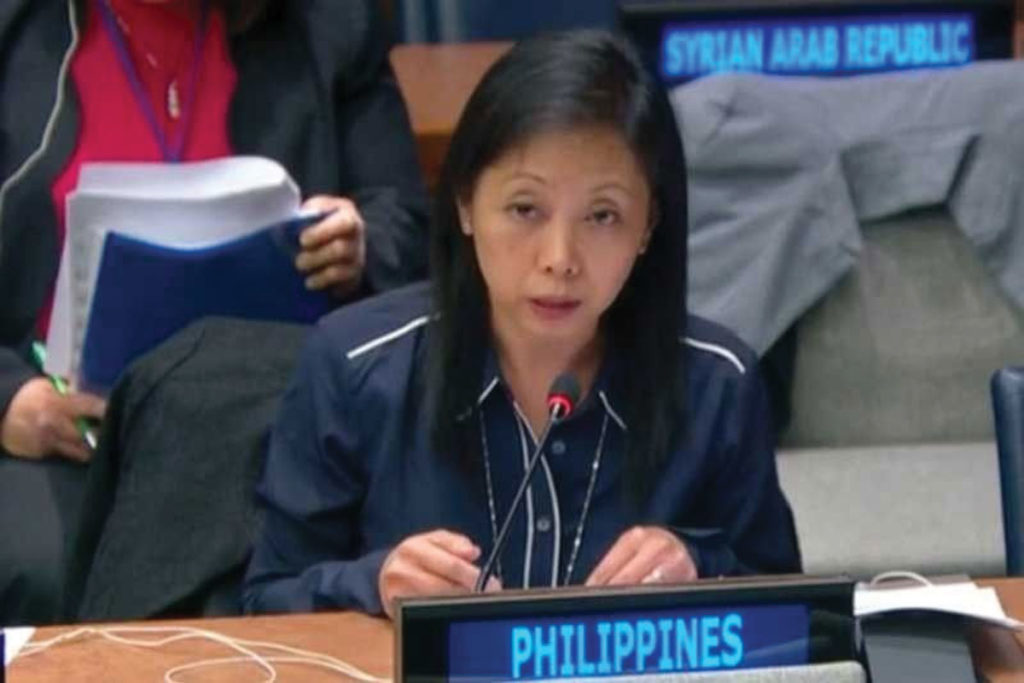
THE Philippines supports the deployment of more women peacekeepers, including in the highest posts during United Nations (UN) peacekeeping missions.
According to Kira Christianne Azucena, Chargé d’Affaires and Deputy Philippine Permanent Representative to the UN in New York, the Philippines has never failed in its peacekeeping commitments and is committed to a larger presence in UN peacekeeping operations.
“There is no debate about their preeminent qualification for any aspect of peacekeeping operations,” Azucena said.
She noted that the Philippines urges member-states to host “Centers of Excellence” per region to support the trainers in delivering training packages to troop- and police-contributing countries consistent with UN standards and approaches.
To improve the safety and security of peacekeeping personnel and that of civilians, the Philippines also believes that “threat analyses and data” should be shared with other missions.
Azucena stated that peacekeeping operations and missions come with high expectations, adding that they have long been the signature and the most popular image of the UN.
The ability of the operations to protect the civilians as well as the UN peacekeepers and personnel is the standard by which UN peacekeeping is measured — which, in turn, affects its legitimacy and credibility.
Azucena noted that the key to ensuring that the Action for Peacekeeping initiative will succeed after accomplishing near consensus on 24 mutual commitments is the continued the dialogue and debates on the subject.
The efforts of the UN Department of Peace Operations to establish clear performance standards and assessments based on regular evaluations of military units, including on command and control, protection of civilians, conduct, discipline and training were welcomed by the Philippines.
“The Philippines reaffirms that peacekeeping operations must be measured by the mandate to protect civilians as the ‘core criterion of success,’ with child protection and combating sexual exploitation and abuse as key elements,” Azucena said.
She added that pre-deployment training should be tailored to respond to particular country-specific or context-specific challenges of protecting civilians with clear definitions of the responsibilities, opportunities and constraints that will be faced by peacekeepers in the field.
She further insisted that the civilians’ safety is absolute and should never be sacrificed for any other consideration.
Azucena lauded the Philippines’ Department of National Defense for taking a strict approach to misconduct cases.
“The Armed Forces of the Philippines (AFP) makes sure that all its peacekeeping contingents are deeply instilled with guidelines for proper behavior and conduct in the UN mission area,” she said.
The AFP, as part of its pre-deployment and in-mission training of personnel, imposes the most stringent measures in the selection of candidates. It also puts into practice a system of rewards and penalties for well-performing and misbehaving personnel.









